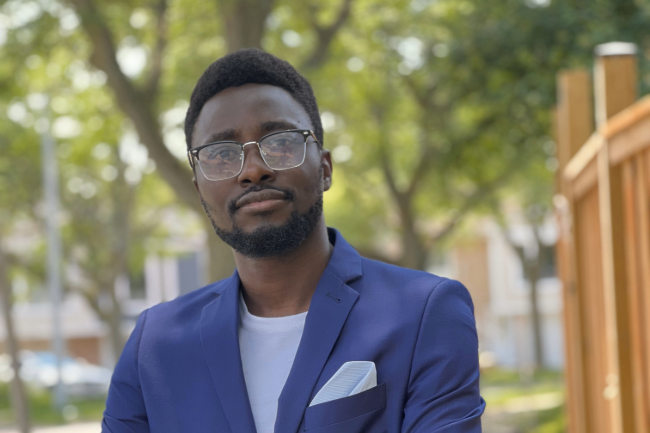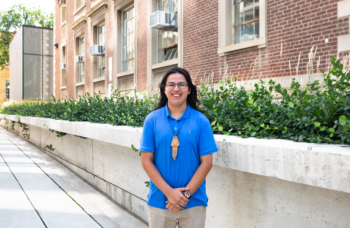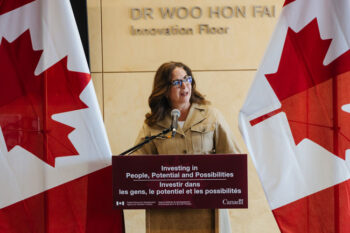Growing up as a science-track secondary student in Nigeria’s coastal city of Lagos, Olanrewaju Adetunji (ChemE PhD student) found himself inspired by the natural world and the complex processes that sustain life.
“One lesson that stood out to me was about cellular respiration and photosynthesis, including understanding how plants convert sunlight into adenosine triphosphate (ATP), which is the main source of energy at the cellular level,” he says.
“This highlighted the incredible efficiency and complexity of natural systems, sparking my interest in how these processes could be harnessed and optimized through engineering.”
Adetunji is one of four siblings and found additional inspiration from his parents — his father worked as a computer scientist and lecturer, while his mother was an entrepreneur and served as a pastor in his community.
“My parents inspired me and my three sisters to value hard work and education,” he says.
Adetunji completed his undergraduate degree in agricultural engineering at the Federal University of Agriculture, Abeokuta, Nigeria, before moving to Canada, where he graduated with a master’s degree in bioresource engineering at McGill University in 2016.
His academic interest lies at the intersection of biology, engineering and health, which led him to a career as an industrial engineer and quality manager in the beverage, biomedical and life sciences industries over the past decade.
“Having worked in industry for the past decade, my motivation for pursuing my PhD now is that academia will enable me to contribute, through fundamental research, to the global goal of finding new ways to ensure that therapeutic and industrial materials can be sustainably developed,” Adetunji says.
“I am motivated by the possibility of combining biotechnology with machine learning and artificial intelligence, to address major societal challenges in public health and environmental sustainability.
“I am particularly fascinated by the technology behind bioprocessing and metabolic engineering.”
Adetunji is one of the 2024 recipients of the Indigenous and Black Engineering and Technology (IBET) Momentum Fellowships. As a fellow, he will receive financial support, mentorship, training and networking opportunities to reduce the systemic barriers for entry into academia.
His PhD research, under the joint supervision of Professors Radhakrishnan Mahadevan and Christopher Lawson (both ChemE), will focus on optimizing upstream bioprocessing and metabolic engineering of microorganisms through application of modelling, simulation and novel biotechnology toolkits.
“The ability to manipulate biological systems to produce valuable products, such as pharmaceuticals, biofuels and specialty chemicals, is incredibly exciting,” he says. “One challenge that I am eager to take on is optimizing upstream bioprocessing techniques to enhance yield and efficiency.
“By improving these processes, we can create more sustainable and cost-effective methods for producing essential materials. This could benefit a range of industries, including health care, energy and agriculture by providing more efficient ways to produce pharmaceutical drugs, renewable energy sources and bioproducts.”
Working with Mahadevan and Lawson is especially exciting for Adetunji, as he looks forward to benefitting from their vast expertise in metabolic engineering, systems biology and synthetic biology in areas such as mining, nutrition, human health and climate change.
“I am immensely grateful to the selection committee at U of T Engineering and the IBET PhD Project for nominating me as one of this year’s recipients of the award,” Adetunji says.
“The fellowship’s support will allow me to focus on my research, collaborate with leading experts and engage in professional development opportunities that will shape my future career.
“I am excited to contribute to advancements that can have a significant impact on industry and society, and to inspire and mentor the next generation of engineers and scientists.”



